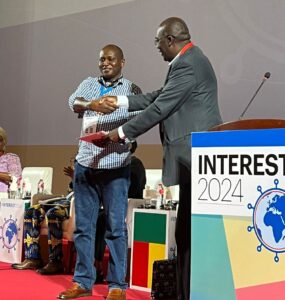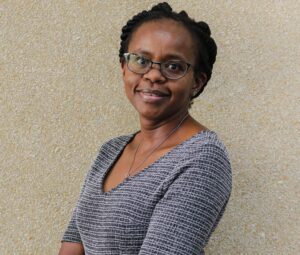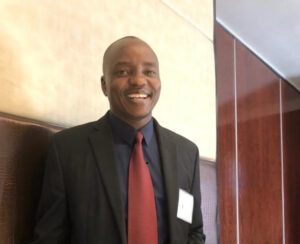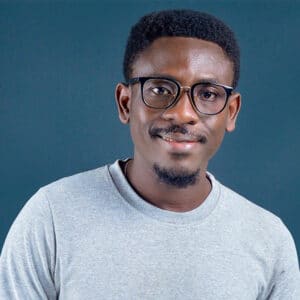In this Q & A, we talk to Enock Chisati, our Cohort Seven Graduate, from Kamuzu University of Health Sciences. He tells us about his research interests in health, wellness, and fitness, the greatest lessons he has drawn as a researcher, and what he has his eyes set on for the future. Read on.
Tell us about your current research interests: What questions/problems are you exploring? What are some of the findings that your work has revealed?
My research interests are focused on understanding the beneficial effects of exercise on the underlying mechanics of human physiology to guide the treatment and prevention of lifestyle diseases and chronic conditions. I also take interest in investigating strategies for sports injury prevention and treatment in low-income settings where there are not enough sports and exercise personnel to attend to injured athletes.
My PhD research focussed on developing an effective exercise design as therapy for reduced bone mineral density resulting from antiretroviral therapy (ART) in people living with HIV. Findings of the research reveal that maximal strength exercise training with high loads performed twice a week for at least twelve weeks significantly improves bone mineral density and strength of people living with HIV with bone mineral density deficiencies. These results suggest that maximal strength training could be used as a therapy for osteoporosis among people living with HIV and receiving ART. Using exercise as therapy seems to be an attractive safe and effective alternative strategy that might be used to manage bone loss resulting from ART in people living with HIV.
Currently, I am working on a project called “The Football Nurse” with colleagues from the University of Cape Town and the FIFA medical department. This is a pilot project aimed at developing a community-based task-sharing approach (Football Nurse) to actively recruit and train nurses as pitch side responders in grassroots women’s football in low-income settings where there are not enough sports and exercise medicine personnel (Physiotherapists, Doctors, Exercise Scientists). Since nurses are currently in higher numbers compared to other healthcare workers at the grassroots of low-income settings, involving them in sports and exercise medicine practice may provide an effective, affordable, and sustainable solution to bridge the treatment gap that female football players currently face and allow safer participation in football activities for all, at all levels.
As a researcher, how did you overcome practical issues such as contact, communication, connectivity? What are the solutions relating to carrying out Community Public Engagement (CPE) during the Covid-19 pandemic?
I completed data collection for my PhD work when Covid – 19 was not at its peak. However, as we plan to conduct the “Football Nurse” project, we will follow Covid – 19 preventative measures during the project. To overcome challenges with communication, we plan to use phone contacts as well as zoom meetings where possible. In addition, we have planned to develop a cloud-based platform/technology to compile and store research data.
What are the greatest lessons you have drawn as a researcher and are there any opportunities you have seen emerge from the pandemic?
As a researcher, the pandemic has taught me to be innovative and accept challenges. Innovation in the sense that I have searched for alternative ways of achieving my set research objectives without compromising on the quality of the research. The pandemic has made me to always have plan B for whatever I do as a researcher.
I have also learned that life does not stop with Covid – 19. As researchers, we need to accept this pandemic as a challenge and find alternative ways of progressing with our investigations without compromising the science and ethics of research.
What’s next for your career? What issues are you going to focus on in your upcoming research projects?
While focusing on the “Football Nurse” project, I also intend to investigate health related physical fitness of Covid – 19 patients living with HIV pre and post-discharge in low-income settings since physical inactivity has been reported to be associated with severe Covid – 19 outcomes in high-income settings. Development and evaluation of a national anti-doping awareness program for athletes and athlete support personnel in Malawian contact sports is also something I plan to focus on in the near future.
This article is part of our #CARTA100 series as we celebrate surpassing 100 CARTA graduates.




